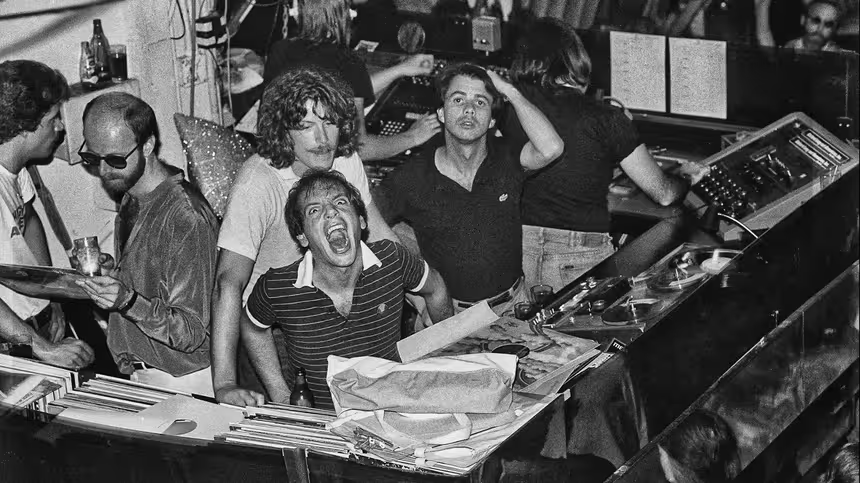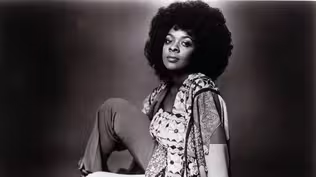
A Political Statement
Clip: Episode 1 | 3m 25sVideo has Closed Captions
Discover how members of the Gay Activist Alliance challenged the status quo at the Rainbow Room.
In 1971, New York City made it legal for same-sex couples to dance together in a public setting. Yet, while disco provided a safe haven for queer expression, the rest of wider society was still not as accepting. Discover how members of the Gay Activist Alliance (GAA) challenged the status quo one evening at the Rainbow Room.
Problems playing video? | Closed Captioning Feedback
Problems playing video? | Closed Captioning Feedback

A Political Statement
Clip: Episode 1 | 3m 25sVideo has Closed Captions
In 1971, New York City made it legal for same-sex couples to dance together in a public setting. Yet, while disco provided a safe haven for queer expression, the rest of wider society was still not as accepting. Discover how members of the Gay Activist Alliance (GAA) challenged the status quo one evening at the Rainbow Room.
Problems playing video? | Closed Captioning Feedback
How to Watch Disco: Soundtrack of a Revolution
Disco: Soundtrack of a Revolution is available to stream on pbs.org and the free PBS App, available on iPhone, Apple TV, Android TV, Android smartphones, Amazon Fire TV, Amazon Fire Tablet, Roku, Samsung Smart TV, and Vizio.

Top 5 Disco Artists: A Pride Celebration
The disco genre, in all its groovy glory, was revolutionary for many marginalized groups at the time — but it was especially crucial for the LGTBQ+ community.Providing Support for PBS.org
Learn Moreabout PBS online sponsorship♪ Ashkinazy: The firehouse was this great big, open space, perfect for a discotheque, and so Saturday nights at the firehouse was turned into a discotheque.
♪ Roskoff: I think it cost $2.00 to get in on a Saturday night and phenomenal.
I mean, it was the best dancing in New York because it was ours.
♪ Ashkinazy: There was a sense of joy and celebration there that did not exist other places.
♪ Ashkinazy: In the very early days of the Gay Activists Alliance, we were trying to find examples of, you know, of discrimination, which was hard to do because, since people were so closeted, they wouldn't report it.
[Distant sirens blaring] Riley: In 1971, New York City made it legal for same-sex couples, male and female, to dance together in a public space, but it was not accepted by wider society.
[Car horns honking] Man: Well, that's the way it was.
They didn't want guys dancing with other guys.
They didn't want that back then.
♪ Ashkinazy: The Rainbow Room was a dance venue that did not allow two men dancing.
It was not a discotheque.
It was a very fancy dance establishment with a-- with an orchestra.
♪ Roskoff: It's on the top of Rockefeller Center, and I put together a group of us to go down there.
We were going to challenge the regulations and see what happens when the management sees us dancing.
Ashkinazy: One of them was my partner at the time, Lew Todd, and this was a challenge to see if they would be stopped.
♪ Roskoff: I arranged for Earl Wilson, who was a very prominent journalist, to be there when we did our same-sex dancing.
I'm wearing a suit and tie.
The women wore dresses.
Ashkinazy: And they got up on the floor and just started dancing.
♪ Roskoff: The middle of a song, we switch partners, and it was male-male, woman-woman, and we danced.
♪ The other people on the floor were, like, stopping and staring at us.
♪ Management came over.
[Hushed voices speak indistinctly] Roskoff: They came to stop us, but we had the press there.
They didn't know what the hell to do, but they did not throw us out.
Ashkinazy: Earl Wilson, who was a very important newspaper columnist, they got a lot of publicity.
Roskoff: The newspaper had a column saying, "Gays Win In A Waltz."
Dancing brought gay people together as a community.
We knew we were making history.


- Arts and Music
The Best of the Joy of Painting with Bob Ross
A pop icon, Bob Ross offers soothing words of wisdom as he paints captivating landscapes.












Support for PBS provided by:

